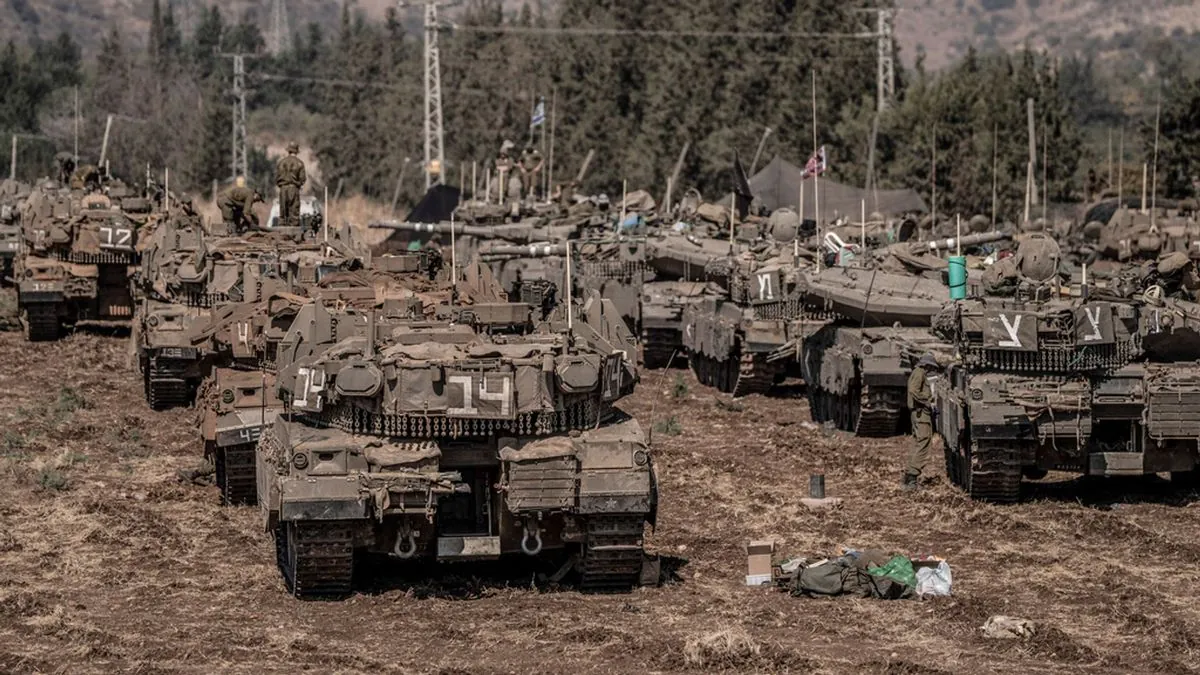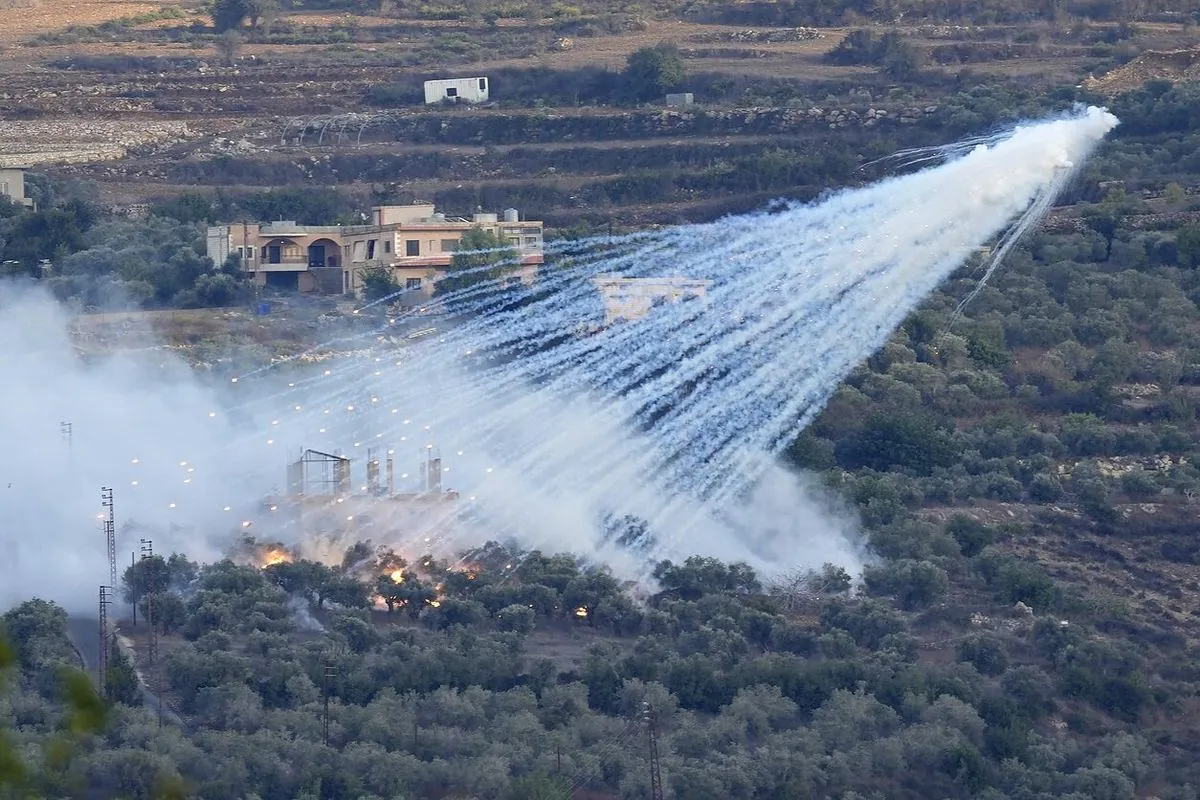Israel Initiates Ground Operations in Lebanon, Targeting Hezbollah
Israel launches limited ground raids against Hezbollah in Lebanon, escalating tensions. The operation follows the killing of Hezbollah's leader and intensive airstrikes, raising concerns of a wider regional conflict.

In a significant escalation of the ongoing conflict, Israeli forces have initiated limited ground operations in Lebanon, targeting Hezbollah positions near the border. This development, occurring in the early hours of Tuesday, October 1, 2024, marks a new phase in the confrontation between Israel and the Lebanon-based militant group.
The Israeli military stated that their operations are focused on villages close to the border that pose "an immediate threat to Israeli communities in northern Israel." These ground raids are supported by precise air and artillery strikes, indicating a coordinated military effort.
Residents of Aita al-Shaab, a Lebanese border town, reported intense shelling and the presence of helicopters and drones overhead, confirming the escalation of military activities in the region.

This operation follows nearly a year of border warfare and comes just days after the killing of Hassan Nasrallah, Hezbollah's leader, by Israeli forces on Friday, September 27, 2024. Nasrallah's death represents a significant blow to both Hezbollah and its primary backer, Iran.
Hezbollah, founded in 1985 during the Lebanese Civil War, has been a major player in the region's geopolitics. With an estimated 25,000-50,000 fighters in its military wing and a vast arsenal of over 100,000 rockets and missiles, the group poses a substantial threat to Israel's northern border.
The recent escalation is part of a broader conflict that extends beyond Lebanon's borders, involving various Iranian-backed groups across the Middle East. This widening scope has raised concerns about potential involvement of major powers like the United States and Iran.
"The resistance forces are ready for a ground engagement."
The Israeli offensive has taken a heavy toll on Lebanon. According to the Lebanese government, two weeks of intensive airstrikes have resulted in approximately 1,000 civilian casualties and forced one million people to flee their homes. In the 24 hours leading up to October 1, 2024, Lebanon's health ministry reported at least 95 fatalities and 172 injuries from Israeli strikes across southern Lebanon, the Bekaa Valley, and Beirut.
Hezbollah's influence extends far beyond its military capabilities. The organization holds seats in the Lebanese parliament and operates an extensive social services network within the country. Its complex relationship with the Lebanese Armed Forces and its involvement in conflicts beyond Lebanon's borders, including Syria, Iraq, and Yemen, underscore its regional significance.
As tensions escalate, the international community watches closely. Hezbollah's designation as a terrorist organization by several countries and its sophisticated cyber warfare capabilities add layers of complexity to the conflict. The group's ideology, blending Shia Islamism with Lebanese nationalism, and its strong ties to Iran continue to shape its actions and the broader regional dynamics.
The unfolding situation raises critical questions about the potential for a wider regional conflict and the implications for stability in the Middle East. As events continue to develop, the world remains on edge, watching for signs of further escalation or potential diplomatic interventions.


































